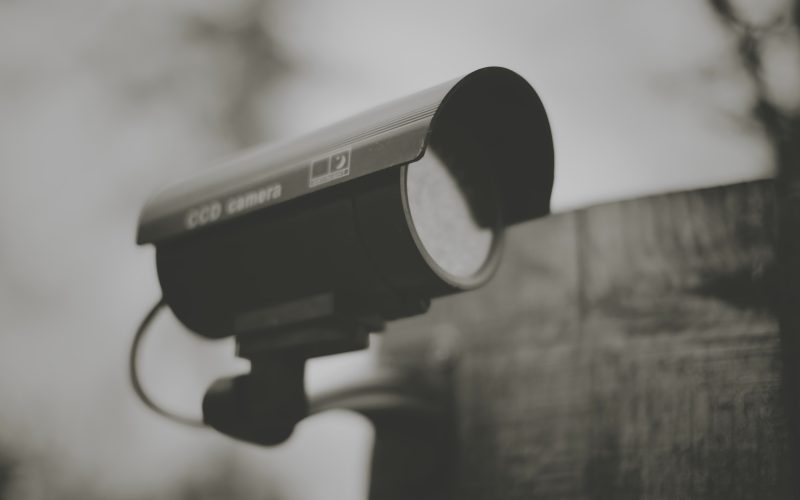Are you tired of your boss keeping tabs on your every move? Do you feel uncomfortable knowing that someone is watching over your shoulder as you work? In today’s digital age, employee surveillance has become commonplace in many workplaces. While some argue that it is necessary for productivity and security reasons, others raise ethical concerns about the invasion of privacy and potential misuse of data. Join us as we explore the controversial topic of “Big Brother” in the workplace and delve into its ethical implications for both employers and employees.
What is employee surveillance?
Employee surveillance is the monitoring of employee behavior by employers. This can be done through a variety of means, including video cameras, GPS tracking, phone tapping, and social media monitoring. Employee surveillance can be used for a variety of purposes, such as to prevent crime or espionage, to ensure workplace safety, or to monitor employee productivity.
While employee surveillance can have some benefits, it also raises a number of ethical concerns. For example, employees may feel that their privacy is being invaded, or that they are being treated like children. Additionally, there is the potential for abuse of power, as employers could use surveillance to target and harass employees they don’t like.
If you’re considering implementing employee surveillance in your workplace, it’s important to weigh the pros and cons carefully. Make sure you have a clear purpose for doing so, and put safeguards in place to ensure that the system is used ethically and responsibly.
The different types of employee surveillance
There are many different types of employee surveillance, and each has its own ethical concerns. Here are some of the most common types of employee surveillance:
1. Video Surveillance: This type of surveillance can be either overt or covert, and it can be used for a variety of purposes, including security, monitoring employee productivity, and investigating misconduct. Ethical concerns include invasion of privacy, potential for abuse, and the impact on workplace morale.
2. Audio Surveillance: This type of surveillance can also be either overt or covert, and it can be used for the same purposes as video surveillance. Ethical concerns include invasion of privacy and potential for abuse.
3. GPS Tracking: This type of surveillance is usually covert, and it can be used for a variety of purposes, including security, monitoring employee productivity, and investigating misconduct. Ethical concerns include invasion of privacy, potential for abuse, and the impact on workplace morale.
4. Social Media Monitoring: This type of surveillance is usually overt, and it can be used for a variety of purposes, including marketing research, investigating misconduct, and protecting the company’s reputation. Ethical concerns include Invasion of privacy and the potential for abuse.
5. Drug Testing: This type of surveillance is usually overt, and it is typically used to ensure a drug-free workplace or to investigate suspected drug use. Ethical concerns include invasion of privacy and the potential for abuse.
The pros and cons of employee surveillance
There are a number of ethical concerns that arise from employee surveillance in the workplace. On the one hand, employers may argue that surveillance is necessary to ensure a safe and productive work environment. On the other hand, employees may feel that their privacy is being invaded and their trust betrayed.
The pros of employee surveillance include:
1. Increased safety: Surveillance can help to deter crime and violence in the workplace. It can also help to identify potential safety hazards.
2. Improved productivity: Employers can use surveillance to monitor employee activity and identify areas where productivity can be improved.
3. Reduced costs: Employee surveillance can help to reduce costs associated with theft, fraud, and other forms of misconduct.
The cons of employee surveillance include:
1. Invasion of privacy: Surveillance cameras and other monitoring devices can invade employees’ privacy and make them feel like they are constantly being watched.
2. mistrust and paranoia: If employees feel that they are being constantly monitored, it can lead to mistrust and paranoia in the workplace.
3. legal implications: There are a number of legal implications that arise from employee surveillance, including issues related to data protection and human rights
The ethical concerns of employee surveillance
The ethical concerns of employee surveillance are numerous. For one, it can be a violation of privacy if employees are not made aware that they are being monitored. Additionally, employee surveillance can lead to a feeling of distrust and paranoia among employees, as well as decreased morale. Additionally, employers need to be careful not to overstep their bounds when it comes to employee surveillance, as this can lead to legal problems.
Alternatives to employee surveillance
When it comes to employee surveillance, there are a few different approaches that employers can take. The first is to install cameras and other monitoring devices in the workplace. This can be an effective way to deter crime and keep employees safe, but it also raises privacy concerns. Another option is to use GPS tracking devices to monitor employee movements. This can be helpful for safety purposes, but again, there are privacy implications. Finally, employers can simply rely on good old-fashioned supervision by managers and supervisors. This may not be as high-tech as some of the other options, but it can be just as effective.
Conclusion
In conclusion, employee surveillance can be a beneficial practice for many employers; however, it also comes with certain ethical concerns. It is important that businesses ensure their surveillance practices are within legal and ethical boundaries so as to protect the privacy of employees and guarantee trust in management. Furthermore, any data collected should only be used for legitimate business purposes, which should always be communicated transparently and openly with employees. Ultimately, businesses must strive to find a balance between efficiency gains from employee monitoring and preserving worker’s rights to privacy in the workplace.











